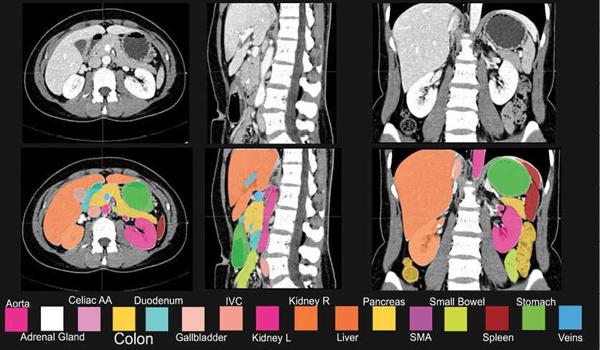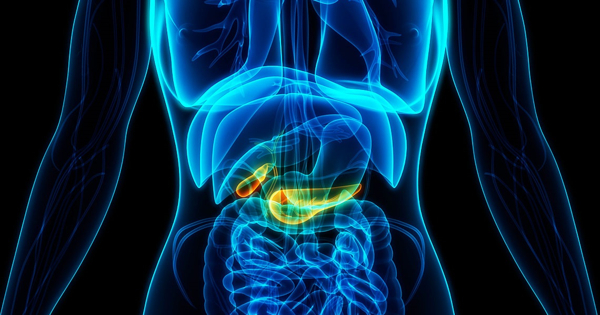Pancreatic cancer presents a unique set of challenges in terms of early warning indications. It is often referred to as a quiet disease because it exhibits no visible signs and symptoms in its early stages. During a typical checkup, doctors are usually unable to feel or diagnose an early tumor.
Cedars-Sinai researchers created an artificial intelligence (AI) program that properly identified who would develop pancreatic cancer based on what their CT scan images looked like years before they were diagnosed. The discoveries, which could help save lives by detecting one of the most difficult tumors to cure early on, were published in the journal Cancer Biomarkers.
“This AI technique was able to detect and quantify very minor indicators of pancreatic ductal adenocarcinoma in CT images years before the disease manifested itself. These are indications that the naked eye would never be able to detect “Debiao Li, Ph.D., head of the Biomedical Imaging Research Institute, professor of Biomedical Sciences and Imaging at Cedars-Sinai, and senior and corresponding author of the study explained. In addition, Li holds the Karl Storz Chair in Minimally Invasive Surgery named after George Berci, MD.
There are no distinguishing signs that can lead to an early diagnosis of pancreatic ductal adenocarcinoma. In the future, this AI technique could be used to detect early disease in people receiving CT scans for abdominal pain or other concerns.
Stephen J. Pandol
Pancreatic ductal adenocarcinoma is the most frequent type of pancreatic cancer, as well as the deadliest. Less than 10% of persons with the condition live for more than five years after being diagnosed or beginning therapy. However, new research has shown that detecting cancer early can enhance survival rates by up to 50%. However, there is currently no easy approach to detect pancreatic cancer early.
People with this form of cancer may exhibit symptoms such as general abdominal pain or unexplained weight loss, but these symptoms are frequently neglected or misunderstood as signals of cancer because they are common in a variety of medical disorders.
“There are no distinguishing signs that can lead to an early diagnosis of pancreatic ductal adenocarcinoma,” said Stephen J. Pandol, MD, head of Basic and Translational Pancreas Research and program director of the Gastroenterology Fellowship Program at Cedars-Sinai and another research author. “In the future, this AI technique could be used to detect early disease in people receiving CT scans for abdominal pain or other concerns.”

The researchers looked through computerized medical data to find persons who had been diagnosed with cancer during the last 15 years and had CT scans six months to three years before their diagnosis. At the time they were collected, these CT pictures were thought to be normal. The team identified 36 patients who met these criteria, the majority of whom had CT scans done in the ER because of abdominal pain.
The AI technology was trained to compare pre-diagnostic CT pictures from persons with pancreatic cancer to CT images from 36 people who did not get the disease. The model was 86 percent accurate in identifying people who would eventually be found to have pancreatic cancer and those who would not develop the disease, according to the researchers.
The AI model detected differences in the surface of the pancreas between cancer patients and healthy controls. These textural alterations could be the result of molecular changes that occur during pancreatic cancer growth.
“Our hope is this tool could catch cancer early enough to make it possible for more people to have their tumor completely removed through surgery,” said Touseef Ahmad Qureshi, Ph.D., a scientist at Cedars-Sinai and first author of the study.
The researchers are currently collecting data from thousands of patients at healthcare facilities across the United States in order to further investigate the AI tool’s prediction potential. Patients with other cancers, such as breast cancer or colon cancer, can have standard screenings, such as mammograms and colonoscopies, regardless of whether they have symptoms. These tests, however, are not accessible for pancreatic cancer.
Unless you have symptoms, doctors will usually not scan you for pancreatic cancer. When symptoms do arise, they may be difficult to distinguish from those of other disorders. Other, more frequent illnesses, like as ulcers or pancreatitis, have symptoms that are comparable.
















